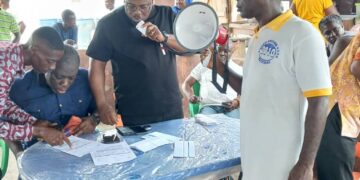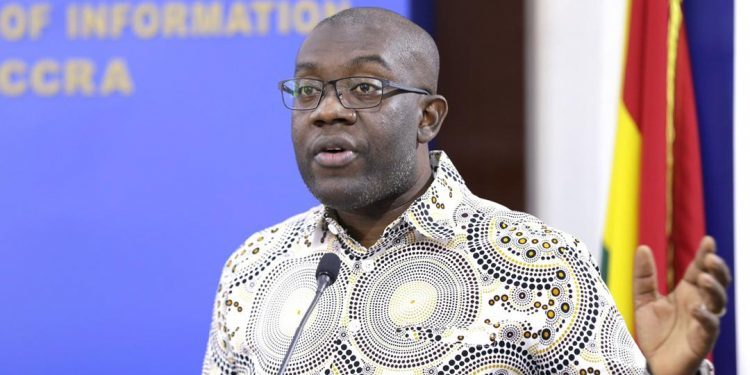In comparison to media claims, the government has reported that GHS19 billion was spent on the COVID-19 pandemic.
This follows stories in some local media outlets, as well as a post by John Jinapor, Member of Parliament for Yapei Kusawgu, that only GHS1.7 billion of the GHS19 billion allocated for COVID-19 issues in 2020 was used, according to the 2021 budget document.
According to media sources, the residual funds were used on items unrelated to COVID-19.
However, Information Minister Kojo Oppong Nkrumah explained at a press conference that the number cited by the media was for just two things under the COVID-19 related expenses.
According to paragraph 3, “the GHS1.7 billion represents spending on just two products under the COVID-19 associated expenditure,” as of the end of December 2020, Ghana had an income deficit of GHS11 billion and a rise in expenditure of GHS14 billion. So, if you’re searching for the real fiscal effect, you’ll need to add these two considerations. The GHS16.8 billion in paragraphs 4 on page 12 (b) is just supplying details on the sources of funding and the fiscal deficit caused by the COVID-19 pandemic, but we urge you to pay attention to this one.”
The Information Minister also claimed at the same event that the COVID-19 Health Levy was not expected to pay for the residents’ free water and energy in 2020.
“Government has never said that we have to pay for the free water and free electricity of 2020. The COVID-19 levy is not for free water and electricity. For the avoidance of doubt, the Ministry of Finance statement deals with it. But if you also go into the budget, if you go to I think page 58 in their statement, they said page 75 but its actually page 58 of the full document. It outlines the full uses of the COVID-19 levy. If I just may have the opportunity to share with you, it’s on page 58. It is all listed there. It never says anywhere that we have to pay for the free water and electricity of 2020, it outlines what the government has done so far in connection with the COVID-19 program, and then it goes on to make the point that to provide the requisite resources to sustain the implementation of these measures, the government is proposing the introduction of a COVID-19 health levy of 1% increase in the National Health insurance levy and 1% point increase in the VAT flat rate and for that purpose. We urge you to highlight the correct position as it has been put out by the Ministry of Finance.”
In a previous interview, the minister said that the government’s planned new taxes would help close the massive fiscal gap caused by the government’s COVID-19 expenditures.
In his 2021 budget presentation, Caretaker Finance Minister Osei Kyei-Mensah-Bonsu announced that the government would implement a COVID-19 Health Levy of 1% on VAT, Flat Rate Scheme (VFRS), and 1% on National Health Insurance Levy (NHIL).
However, the minister clarified his previous comment, stating that the levy would help with the procurement, delivery, and administration of COVID-19 vaccines, among other items.
Source: ATLFMNEWSROOM

























